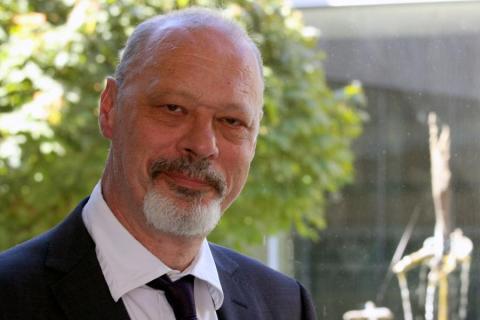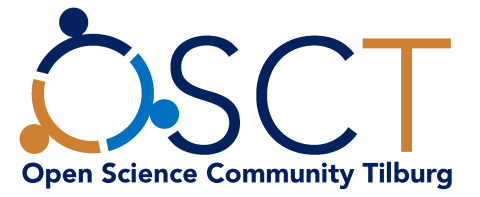Open Education Lab
Open Education is the umbrella term for freely available education and educational resources. The university wants to stimulate OE on the assumption that sharing material increases the quality of the educational material, increases the visibility of the institution, and, in the end, results in saving on expenses. After all, why should, for example, an introduction to statistics have to be made each time again?
When we talk about Open Education, we mean both educational resources that can be shared and edited (Open Educational Resources) and full lessons and courses that are freely available and can be attended at any location. Of course, The MOOCs (Massive Open Online Courses) undoubtedly stand out.
As part of Open Science, we also support Open Education. One of the first results is Babylon’s Burning: TSHD video lectures in the form of an American talk show.
Open Education: Ico Maly on Algorithmic populism
Do you want to contribute?
There are, of course, many other possibilities. Would you perhaps like to publish your reader as an Open Textbook? Are you in possession of recordings of lectures that you want to release in an attractive way? In any case, the Open Science Community would like to contribute ideas and offer assistance, and invites lecturers to contact the Open Science coordinator Daan Rutten.
“Babylon is Burning”: an Open Access initiativ

by Professor Jan Blommaert
In the beginning of 2019, the Babylon research institute at TiU and the TiU-DCU Diggit Magazine started broadcasting a series of academic talk shows called “Babylon is Burning”.
The talk shows are an instrument to bring high-level academic content, produced and controlled by academics, to a wide audience in a contemporary format embedded in popular digital media culture.
The format design itself is research-based and the reactions of audiences are research objectives. Babylon and Diggit thus engage in a unique project to construct academic digital culture while studying it. The talk shows will be broadcast on Diggit Magazine and YouTube.
Open Access is one of the main policy priorities of academic authorities and governments worldwide, and various measures have been taken and implemented in view of the goal of making academic content widely available, not only to the scholarly community but also to the public beyond the confines of research institutes.
Read the article by Jan Blommaert
Background
Apart from financial agreements with major publishers of academic content, media events such as TED talks and the widespread usage of academic sharing platforms such as Researchgate, the Open Access movement includes a large number of attempts by academics to diversify the genres of academic communication, by means of mass media contributions, blogs and social media updates in the digital sphere. Observe that conventional academic publishing also has now largely gone digital. Yet, a full exploration of the potential of digital tools for academic communication has not been tried.
In 2016, the Department of Culture Studies at Tilburg University (TiU-DCU) launched Diggit Magazine, an online e-zine publishing multimodal academic content. Diggit is fully integrated as an educational tool in the Online Culture programs run by DCU. Diggit Magazine is explicitly an Open Access initiative, not just aimed at creating a low-threshold digital platform for the consumption of academic content, but also one for the production of academic content.
Babylon, Center for the Study of Superdiversity – one of TiU’s research institutes – has for almost a decade been active as an Open Access actor, publishing since 2011 a highly visible and successful series of online Open Access working papers called Tilburg Papers in Culture Studies. More than 200 TPCS papers have appeared, many of them authored by leading scholars in the fields of study. In addition, Babylon’s research agenda focuses on the interaction between online and offline forms of diversity.
“Babylon is Burning” is a next-level approach to Open Access, in which a popular new media format is explored as to its potential to become a vehicle for sharing academic content. In contrast to other talkshows, the ownership of “Babylon is Burning” is entirely academic and the program is planned, executed and produced exclusively on the basis of a research-driven agenda developed by Babylon and Diggit Magazine jointly.
The initiative inscribes itself fully in the focus on digital dimensions of contemporary society, articulated by the European and Dutch authorities, Tilburg University, the School of Humanities and Digital Sciences and the Department of Culture Studies embedded in that school. It merges the study of digital culture with the making of digital culture and the use of digital culture as a vehicle for Open Access academic communication.
The Format
The talkshow format is extraordinarily popular in both mass media and online social media. While “ludic” in its conception, there is no limit to the types of content that can be communicated through this format. Academic content can be turned into an attractive range of topics, provided it is adequately formatted.
The main thematic line followed in Babylon is Burning is digital culture in all of its dimensions. Digital culture research topics are used as the point of entry for a 25-minute show in which interviews between an anchorwoman and one (or two) guests discuss fundamental issues in a non-academic key, and show and analyze examples of such topics. Topics include new forms of online social behavior, online subcultures, online political developments, the psychology of online social life, crosscultural issues in online culture, forms of online knowledge (e.g. conspiracy theories) and their effects on the public sphere and everyday behavior.
Within the span of the talk show, thematic interview parts are separated by “commercial” breaks offering creative modes of academic marketing. The entire program is professionally filmed and edited and is cast in an appealing contemporary visual form.
Links
Video: Open Educational Resources and Open Textbooks
Michiel de Jong (TU Delft) on Open Educational Resources and the Open Textbooks project (textbooks.open.tudelft.nl) at the university of Delft.

Join the Tilburg University Open Science Community
Talk and learn about open science practices, get practical advice, connect with other Open Science Communities
